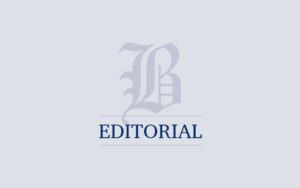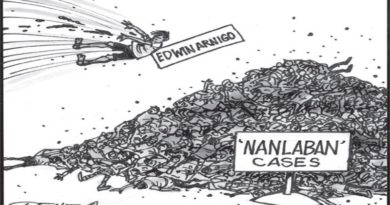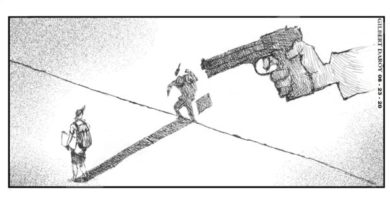EDITORIAL:Party politics risks economy
BANGKOK POST
EDITORIAL COLUMN
For a country experiencing a fragile economy, with worsening economic prospects projected for the rest of this year and next, putting former junta leader and current Prime Minister Gen Prayut Chan-o-cha at the helm of a newly created “economic cabinet” seems to be an odd and desperate choice.
Apart from leading Thailand through five years of weak economic growth, Gen Prayut’s management experience does not extend beyond the military barracks. His leadership of the economic team will thus neither help brighten the gloomy outlook nor resuscitate growth. However, it may be needed just to save the coalition government’s economic team from disintegrating.
That means rescuing the country’s sagging economy has to take a backseat. It is the high price Thai people must pay after the new constitution and new electoral rules brought about a government comprised of 19 political parties.
This week, the Bank of Thailand revealed that the first quarter saw the slowest growth for more than four years. This year the economy is likely to expand more slowly than previously forecast because of subdued exports and domestic consumption, the central bank said.
Some economists argue real growth in the first quarter was much lower than the government figure of 2.8%.
———

The Prayut government will face numerous economic challenges. The current drought, which is the worst in a decade, will imperil crop production. Declines in exports and domestic consumption will likely persist. Manufacturing output will still be low. The strong baht and protectionist trade policies of the US and China will also heap more pressure on the domestic economy.
The economic team will soon hold its first meeting and it is doubtful whether it will come up with measures markedly different to the economic packages of previous governments that did little to revive the sluggish economy.
Thailand’s growth over the past five years has been much lower than that of its neighbours: Indonesia, Myanmar, the Philippines and Vietnam. But Gen Prayut last week play downed the situation, saying the low growth was a result of Thailand’s large industrial base.
This and other similar comments on the economy by Gen Prayut make many wonder how much he can offer the economic team and whether his decisions will be based on sound judgement.
As the majority of the current government’s policies do not seem to directly address these challenges, Gen Prayut’s economic team should come up with specific measures to deal with the ongoing economic challenges.
The impact of the economic slowdown has been felt across society, especially by poor and low- to middle-income people. The team must make reviving the economy and resuscitating growth a priority.
Unfortunately, coalition parties — with the Democrats overseeing the commerce and agriculture portfolios, Bhumjaithai in charge of transport, and Palang Pracharath controlling the finance, industry and energy ministries — will demand budgets to fulfil policy pledges made during their election campaigns.
Having Gen Prayut leading the economic team is a crisis management strategy to ensure harmonisation in the execution of their policies.
With this approach aimed at mending potential differences, the economic team is unlikely to offer optimum benefits to the country.
It is a desperate measure enacted during a desperate time.
EDITORIAL
BANGKOK POST EDITORIAL COLUMN










